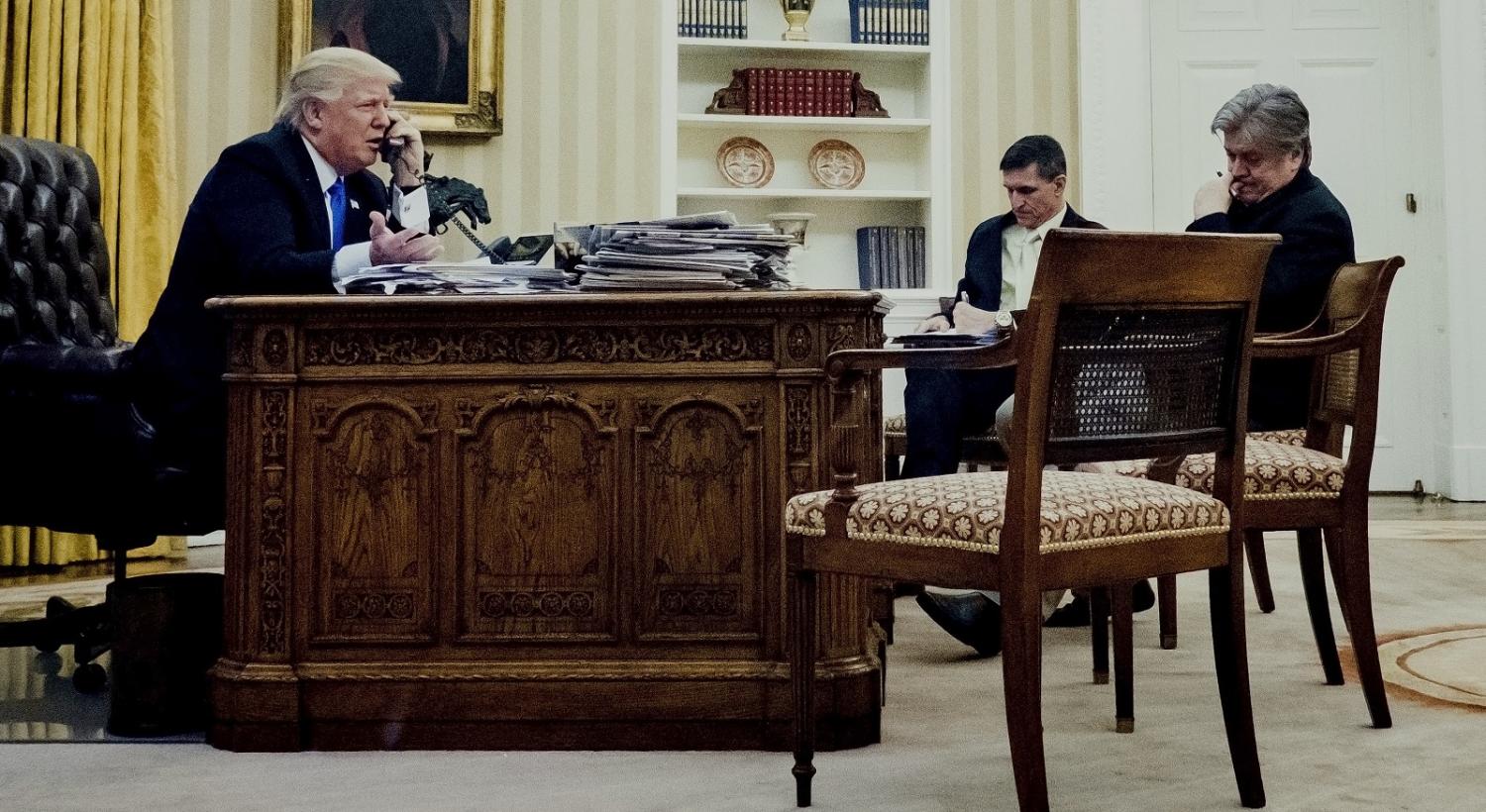So mesmerised have Australian commentators become with the Trump/Turnbull telephone conversation from late January that the leaking last week of the verbatim transcript was always going to breathe new life into the episode.
Some journalists even appear to be the modern day equivalent of the Roman augurs, painstakingly picking through the entrails of the exchange to divine the portents of the president’s foreign policy, the health of the alliance, and the calibre of the prime minister’s leadership.
But this has been a foolish and futile exercise. When the history of this era in the alliance is written, it is a fair bet that this particular moment will barely rate a mention. That’s because far from representing any kind of breach in the alliance, or serious disagreement over policy, the saga says a great deal more about residual Australian anxieties about how it is treated by its great power ally. Australians, it seems, crave only the warming glow from Washington: the rhetoric of reassurance, the fables of the familial. But when the language and the treatment gets a little rough, the skin is surprisingly thin.
Furthermore, the exchange pales in comparison not only to some of the more consequential disagreements that American and Australian governments have had in the past, but also to the bigger question of how these two countries understand and approach the ever shifting geopolitical plates in the Asia-Pacific.
Never mind, too, that the leaking of the entire transcript will only further diminish any residual faith amongst other world leaders that private conversations with this White House will remain so. Or what the leak does to the integrity of the very business of American government.
Yet Australia’s tribunes of the alliance – some fresh from drinking the coolade Kool-Aid at the latest gathering of the Australian-American Leadership Dialogue – have instead recast their narrative of the conversation. In late January they saw a relationship in ‘crisis’ and fulminated about the ‘disrespect’ Trump had shown for his Australian counterpart. Now they salivate over what was supposedly one of Turnbull’s ‘finest moments’ as prime minister.
In essence, however, the leaked transcript reveals very little that we didn’t already know. True, there is the raw detail of Trump’s reluctance to acquiesce to the deal struck by Obama and his desire to stick by the campaign pledges on immigration that had carried him to the Republican nomination and the presidency.
And to be fair to the prime minister, we also see a leader unequivocally stating his case for why the deal should be honoured and patiently explaining Australian border protection policy. Here, at the very least, Turnbull cannot be faulted in defending what he sees as being in Australia’s national interest. It is passing strange, however, that Turnbull repeatedly stresses to Trump during the exchange that the vetting process might mean that the US doesn’t have to accept any of the 1250 refugees from Manus Island and Nauru.
A number of other questions remain. The first relates to Turnbull’s judgment in raising this issue in his first conversation with the new President. The resulting acrimony in the discussion meant there was no time left to discuss the weightier geopolitical issues. By the time it got to that, Trump had long since lost interest. So why couldn’t the refugee resettlement have been left to Australian and American officials to work it through?
The second relates to Turnbull’s farewell words on the call. He told Trump ‘you can count on me. I will be there again and again’. This is precisely the kind of formulation that gives American officials the impression that Australian support on any other US policy will be forthcoming, come what may. Recall that an Obama administration official said in late 2015 that ‘all of our allies give us headaches, except for Australia. You can always count on Australia’.
Is this how Australia really wants to be viewed in Washington? It is one thing to be a valued and trusted ally; another matter entirely to be taken for granted. It is possible to be a strong supporter of the alliance – to promote its benefits and underline its enduring importance – but still make the case that, when circumstances demand, Canberra can and should be more prudent, restrained and cautious in going along with everything that Washington wants it to do.
Some will see criticism of the prime minister on this point as pedantic. But language is important. It need only be recalled that in a private memorandum written to President George W Bush in July 2002, eight months before the invasion of Iraq and before UN weapons inspectors had finished their work, British Prime Minister Tony Blair offered his unqualified support for his American counterpart: ‘I will be with you, whatever’. The consequences flowing from this pledge – for Iraq and the wider Middle East, for Blair’s legacy and for US prestige, influence and credibility, continue to be catastrophic.
What will it take, then, for Australian leaders to learn that this kind of line is simply not needed to keep the alliance in good working order? And that the Americans have greater respect for an ally that is more critical and discerning?

